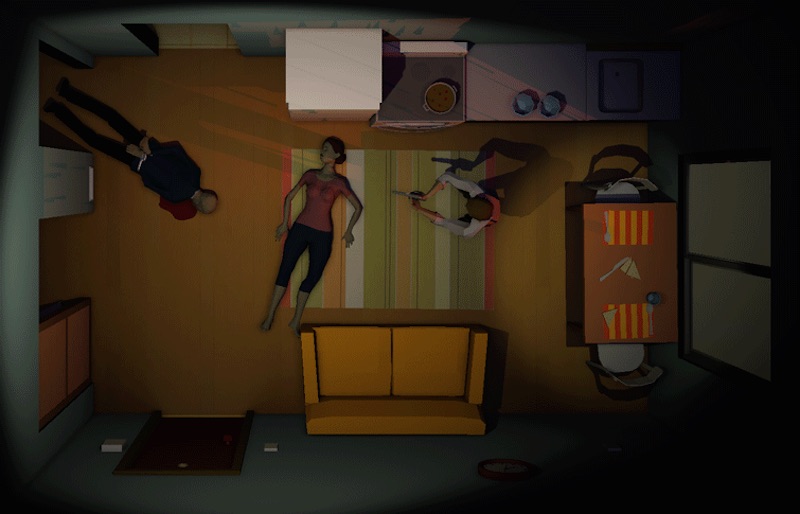


And yet the order in which we complete tasks is often important.
#12 minutes video game how to#
How I first discovered how to subdue the intruder, for instance, was purely by accident - the result of drugging the wife, an act which I at first felt guilty about.
/cdn.vox-cdn.com/uploads/chorus_image/image/63975945/twelve-minutes-screenshot-01_1432.0.0.1488039570.0.jpg)
The game is smart - the player, of course, and the husband remember all the prior events, allowing for shortcuts to be revealed. Would you help me?’ Once that came into place, I adjusted how the characters talk.” Not, ‘I hate you because you’re not doing what I want.’ More, ‘I have this need. I was trying to deconstruct how people talk, so when there’s a conflict they’re talking from their heart. Most people blame others for how they feel. “When a need is not being met, you try to express that based on the conditions you’ve had as a person. “When you want something, it’s because you have a need not being met,” Antonio says. And if we make a mistake, namely when a conversation leads to dead ends, we can walk out the apartment door and instantly reset the loop. Sometimes we accrue the most information just by saying nothing. The wife spends her evening reading a book on meditation while the husband either tries to prove to her that the time loop is real or to piece together the competing stories of the past that eventually reveal themselves. That made me question how the characters talk to one another.”ĭespite the time limit, “Twelve Minutes” doesn’t rush us. What am I going to say to my kid about beating up other people or taking a toy from another kid? The only values I have were the ones given to me, and maybe some of those weren’t ideal. “With kids, we have to teach values to this new human being, but you start to question your own values. “When I started this game, I had my first child,” says “Twelve Minutes” creator Luis Antonio. And if the player-controlled character acts selfishly - that is, demanding answers that will lead to the end of the mystery - characters will respond negatively, realizing they are being put on the defensive. I was looking at the clock, pointing and attempting to click on everything on the screen - “Twelve Minutes” recalls the cursor-driven adventure games of yore (think early “King’s Quest” titles) - in the hopes that I could discover as much as I could as quickly as possible.īut if one dives into a conversation without exploring the apartment and before solving how to converse extensively with both the protagonist’s wife and the intruder, discourse will almost always quickly dissolve into conflict. When I started playing “Twelve Minutes,” the latest from Annapurna Interactive, the film studio that is now more or less a game development house, I was rushing through it all wrong. Knowledge, in “Twelve Minutes,” is a blessing and a curse. “Twelve Minutes,” says its director, is about knowledge, but mostly it zeroes in on how our worldview is shaped by our interpretation of the limited facts we have, which become all the more convoluted when human emotions get involved. Help is 15 minutes away, three minutes longer than the game is designed to last. So when you find a smartphone and think dialing 911 will, if not save you, at least create some game-worthy drama, forget it. And just when we think we’re getting somewhere - bam! - the game resets. The more we discover of these nameless characters the less we truly know (and sometimes want to know). Its “Groundhog Day"-like conceit - that our main character, the husband, is trapped in a time loop while his wife is accused of murder - reads like a “Twilight Zone” gimmick but becomes more engrossing the deeper we get. “Twelve Minutes” is an exquisitely designed puzzle game disguised as a cinematic thriller, with the stars to match - Ridley, James McAvoy as the husband and Willem Dafoe as the intruder lead the cast.


 0 kommentar(er)
0 kommentar(er)
